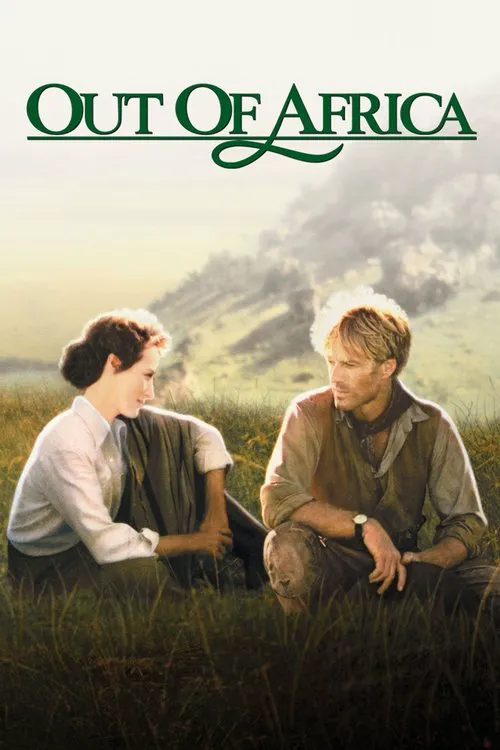Out of Africa

Plot
In the early 20th century, Danish author Karen Blixen, then a young and adventurous woman, sets out to establish a new life for herself in British colonial Kenya. The lush African landscape and vast plains of the Kenyan countryside are a farcry from the stifling conventions and societal expectations of her native Denmark. Karen, who has recently married Baron Bror Blixen, a Swedish aristocrat, believes that building a coffee plantation in this exotic and untamed land will bring her a sense of purpose and fulfillment. Upon their arrival in Kenya, the couple is greeted by the rugged terrain and unforgiving climate. The challenges they face are numerous, and their marriage is put to the test as they struggle to adapt to their new surroundings. Karen, a woman of independent spirit and intellect, soon finds herself drawn to a dashing big game hunter named Denys Finch Hatton, while her husband is increasingly distant and disillusioned with their life in Kenya. As the days turn into weeks, and the weeks into months, Karen finds herself growing more and more enchanted by the beauty and majesty of the African landscape. She becomes deeply involved in the lives of the local people, learning their customs and traditions, and forming strong bonds with them. Denys, who shares her love of Africa and her passion for life, becomes her closest friend and confidant, and their relationship deepens, but remains platonic, as they have different personalities and interests. Meanwhile, Karen's marriage to Baron Bror continues to disintegrate, and she is left to ponder the meaning of her life and her place in the world. Her relationship with Denys serves as a beacon of hope and freedom, and she finds solace in his presence. However, their friendship is not without its risks, and they must tread carefully to avoid the consequences of their actions. As the years pass, Karen's coffee plantation proves to be a successful venture, but her personal life remains complicated. She and Denys continue to enjoy each other's company, but their friendship remains platonic, and they are both committed to their respective partners. Despite the challenges they face, Karen finds joy in her work and in her relationship with Denys, and she is able to create a new lease on life for herself in Africa. Tragedy strikes when Denys's small biplane crashes in the mountains, killing him instantly. Karen is devastated by his loss, and she is left to pick up the pieces of her shattered heart. In the aftermath of Denys's death, Karen is forced to re-evaluate her life and her priorities. She is confronted with the harsh realities of the African landscape, and she must find a way to move forward without the man she loves. In the end, Karen is forced to leave her beloved coffee plantation and return to Denmark. She is a changed woman, wiser and more resilient, but still haunted by the memories of her time in Africa and her lost love for Denys. As she looks back on her years in Kenya, she realizes that she has gained a newfound appreciation for the beauty and complexity of life, and she is grateful for the experiences she had on the African plains. The film ends on a bittersweet note, with Karen reflecting on the lessons she has learned from her time in Africa. She is a stronger and more confident woman, but she is also left with a deep sense of melancholy and loss. Despite the challenges she faced, Karen's time in Africa was a transformative experience that shaped her into the person she is today. Her story is a testament to the power of love, loss, and resilience, and it serves as a poignant reminder of the fleeting nature of life and love.
Reviews
Recommendations




